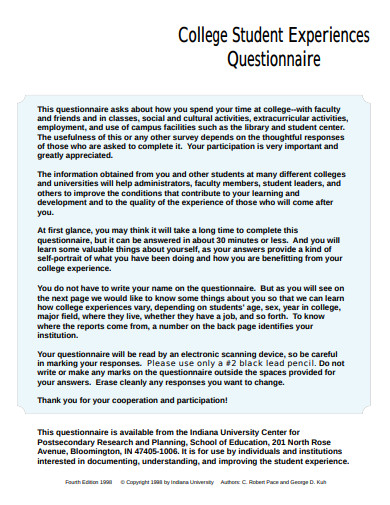

A Profile of the Characteristics, Needs and Counseling Preferences of Talent Search Summer Institute participants. Adolescent coping style and behaviors: Conceptualization and measurement. Is giftedness socially stigmatizing? The impact of high achievement on social interactions. Manor-Bullock, R., Look, C., and Dixon, D. Gifted adolescents' attitudes toward their giftedness: A partial replication. (ed.), Adolescence and Stress: Report of an NIMH Conference, National Institute of Mental Health, Rockville, MD, pp. Individual development: Its significance for stress responsivity and stress adaptation. Anxiety and self-concept as antecedents of stress and coping: A longitudinal study with German and Turkish adolescents. Self-concept, self-esteem, and peer relations among gifted children who feel “different.” Gifted Child Q.
#Gifted student questionnaire manual
Manual for the Self-Perception Profile for Adolescents. The pursuit of excellence or the search for intimacy? The forced-choice dilemma of gifted youth. Department of Education, Office of Educational Research and Improvement. Coping with Stresses and Concerns During Adolescents: A Longitudinal Study. Adolescent coping: The different ways in which boys and girls cope. (eds.), Readings in Child Development and Personality, Harper and Row, New York, pp. (eds.), Handbook of Gifted Education (2nd Ed.). Gifted adolescents: Five steps toward understanding and acceptance. The social cognition of gifted adolescents in schools: Managing the stigma of giftedness. The social cognition of gifted adolescents: An exploration of the Stigma of Giftedness Paradigm. Differences in young adolescents' coping strategies based on gender and ethnicity. Understanding the needs of gifted students: Social needs, social choices and masking one's giftedness. Current contradictions in adolescent theory. Academic Press, San Diego, CA.Ĭoleman, J. Statistical Power Analysis for the Behavioral Sciences (Rev. Department of Education Office of Educational Research and Improvement, Washington, DC. Influences on Strategies Adolescents Use to Cope With Their Own Recognized Talents. Academic achievement and social acceptance. (eds.), Understanding the Gifted Adolescent: Educational, Developmental, and Multicultural Issues, Teachers College Press, New York, pp. Adolescence and giftedness: A look at the issues. A comparison of role strain and coping strategies by gender and family structure among early adolescents. (ed.), The Social Context of Coping, Plenum, New York, pp. Development, stress, and role restructuring: Social transitions of adolescence. Relationships with self-concept scores suggest that problem-focused social coping strategies are more adaptive than are emotion-focused, denial-based strategies.Īneshensel, C. Grade level (9–12) main effects and gender by grade level interactions were absent. Gender differences at Time 1 suggest that females are more likely than males to deny giftedness and maintain high activity levels, whereas males are more likely than females to use humor. The scales had adequate internal consistency and test-retest reliability at an 8-week interval. Factor analysis produced 7 social coping scales similar to those found in previous studies. The current study uses a revised SCQ and a differently identified group of gifted students.

Previous SCQ studies were based on participants who earned high scores on above-level standardized tests. The Social Coping Questionnaire (SCQ) is designed to measure the use of several such strategies. Several authors suggest that gifted adolescents employ a variety of strategies to cope with perceived negative social effects of recognized high ability.


 0 kommentar(er)
0 kommentar(er)
